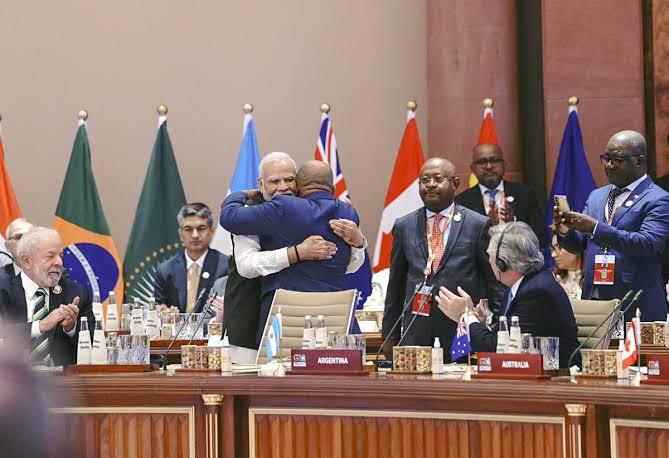Healthcare systems form the backbone of a nation’s health security, encompassing infrastructure, medical supplies, personnel, and policies that ensure accessible care and protection against diseases. However, in many African countries, these systems remain fragile and vulnerable to shocks from pandemics, climate change, conflicts, and systemic challenges.
Africa’s healthcare systems have long faced numerous challenges that range from inadequate funding and limited infrastructure to shortages of skilled health workers and high disease burdens. These challenges have been exacerbated by recent crises like the COVID-19 pandemic, the Ebola outbreaks, and ongoing monkey pox (M. pox) outbreak. In 2020, Africa was hit hard by the COVID-19 pandemic, with countries such as South Africa, Nigeria, and Egypt being particularly affected.
READ ALSO: http://Health Care Access: Innovations in Telemedicine Across the Continent
The pandemic revealed deep flaws in health infrastructure and resource allocation, but it also showcased the continent’s resilience and potential for innovation. African governments, civil society organizations, and international partners have since intensified efforts to improve health systems, with many now focusing on creating more robust, adaptable infrastructures capable of managing both regular health services and unexpected emergencies. It is therefore paramount to strengthen the healthcare systems within the continent to tackle both current and future health crises.
Key Areas for Strengthening Health Systems
Infrastructure and Facilities
A critical challenge for many African nations is the lack of adequate healthcare infrastructure. According to the World Health Organization (WHO), Africa faces a deficit of 4.3 million health workers. Many regions still lack basic health facilities, and those that exist are often poorly equipped. Strengthening healthcare systems involves building new hospitals, upgrading existing ones, and ensuring equitable access to healthcare in rural and underserved areas. This includes equipping facilities with modern technologies and adequate medical supplies.
Workforce Training and Retention
Africa faces a severe shortage of skilled healthcare professionals, with only 3% of the world’s health workers serving a continent that bears 25% of the global disease burden. Addressing this imbalance requires investment in education and training programs fro healthcare professionals to develop a capable and motivated workforce.
Equally important is the retention of health workers. Many professionals leave for higher-paying opportunities in Europe and other regions. Offering competitive salaries, improving working conditions, and creating career development pathways could help stem this brain drain and ensure that talent remains within the continent.
Digital Health and Innovation
Technology has the potential to transform healthcare delivery in Africa, enabling the continent to overcome traditional barriers. Digital health solutions, including telemedicine, mobile health applications, and electronic health records, can improve access to care, especially in remote areas.
Investing in digital infrastructure would enhance the ability to monitor disease outbreaks, deliver healthcare services remotely, and streamline overall health system management. Countries such as Kenya and Rwanda have already demonstrated the potential of digital health through successful initiatives in telemedicine and mobile health outreach.
Strengthening Supply Chains
During the Ebola outbreaks and the COVID-19 pandemic, there were significant delays in the distribution of medical supplies, including personal protective equipment (PPE), vaccines, and medicines. Strengthening supply chains is vital to ensuring that critical health commodities can be distributed in a timely and efficient manner. This requires investment in logistics networks, better storage facilities, and improved coordination among governments, international organizations, and the private sector.
Health Financing and Sustainability
Many African nations struggle to allocate sufficient resources to their healthcare systems thereby creating instability in their health sectors. Governments must prioritize healthcare funding and explore innovative financing mechanisms, such as public-private partnerships and national health insurance schemes, to ensure sustainable investments. Additionally, African countries must explore regional cooperation to pool resources, share knowledge, and address cross-border health challenges.
The Way Forward
Strengthening healthcare systems will require sustained commitment from African governments, international partners, the private sector, and communities themselves. By investing in infrastructure, workforce development, technology, financing, and prevention, Africa can build healthcare systems capable of responding to health emergencies while also providing high-quality care for all.


